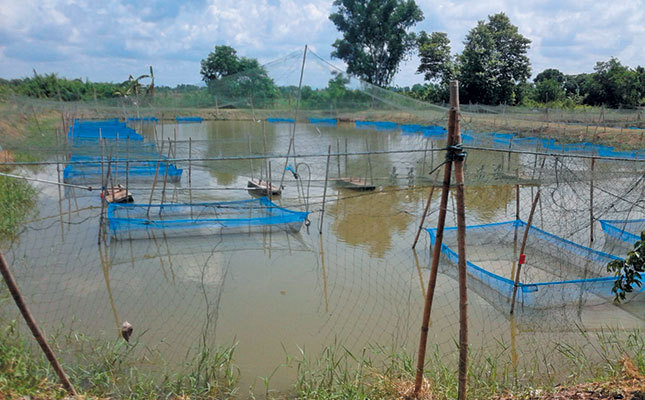
Travelling in Thailand a few years ago, I took the road from Bangkok towards the Cambodian border, across the farmlands of the south.
Farms of all types could be seen on both sides of the road: rice fields, banana and other fruit farms, vegetable lands, and large fish ponds.
Many people were working these farms, and most were distinctly poor in economic terms.
What was immediately noticeable, though, was the lack of fencing.
I asked my host how much of their yields producers lost through theft. He looked at me, horrified; very little theft took place, he said, because the Thai are honourable people.
Stark contrast
I have just returned from the Mpumalanga Lowveld, where I noticed that my old fish farm near Barberton is now a macadamia farm.
Indeed, the entire area is covered with macadamia orchards. But it looks more like a military zone than farmland: 3m-high fences, adorned with rolls of razor wire, are everywhere
Farmer’s Weekly recently reported that 15% of South Africa’s macadamia harvest is lost through theft. And I gather that mango and avocado orchards are having to increase their security too.
Here’s an example of what local producers are up against. A local farmer who has a
large dam decided to try tilapia farming, so he constructed a cage supported by
100L blue plastic drums.
That very night, thieves constructed a raft out of scrap polystyrene from the nearby dump, rowed out to his cage, which had no fish at that stage, and stole the drums, sinking the cage in the process.
The drums were sold for making beer. Needless to say, no fish was ever produced.
Theft bedevils Africa
Theft of produce, from fish to fruit to animals, as well as infrastructure, is not unique to sub-Saharan Africa, of course, but it is uniquely severe on the continent.
Poor people are found all over the world: Bangladesh, where tilapia pond farming is thriving; Egypt, where small-scale farmers contribute to the 700 000t of tilapia produced annually; Indonesia, India and Malaysia, where the industry is growing rapidly; and China, which is today the world’s largest tilapia producer.
These examples give the lie to the argument that theft is simply a symptom of poverty,
as does the theft and corruption carried out by so many obscenely affluent politicians and municipal administrators.
Rampant theft limits economic growth in Africa and should be an embarrassment to the continent.
If small-scale aquaculture entrepreneurs need to finance security fencing for their few ponds to prevent theft by their communities, they have little chance of succeeding.
Where is the moral leadership in Africa that says a person who has worked hard to produce should not be stolen from? According to a general dealer I know, successful theft is described as ‘luck’ by those who get away with it.
It is apparently not viewed as wrong, but simply a way of gaining without having to work.
Until such time as these attitudes change, small-scale community aquaculture will have little future.
Nicholas James is an ichthyologist and hatchery owner.
Source; Farmers weekly












Comments (0)
Login or Register to add a comment